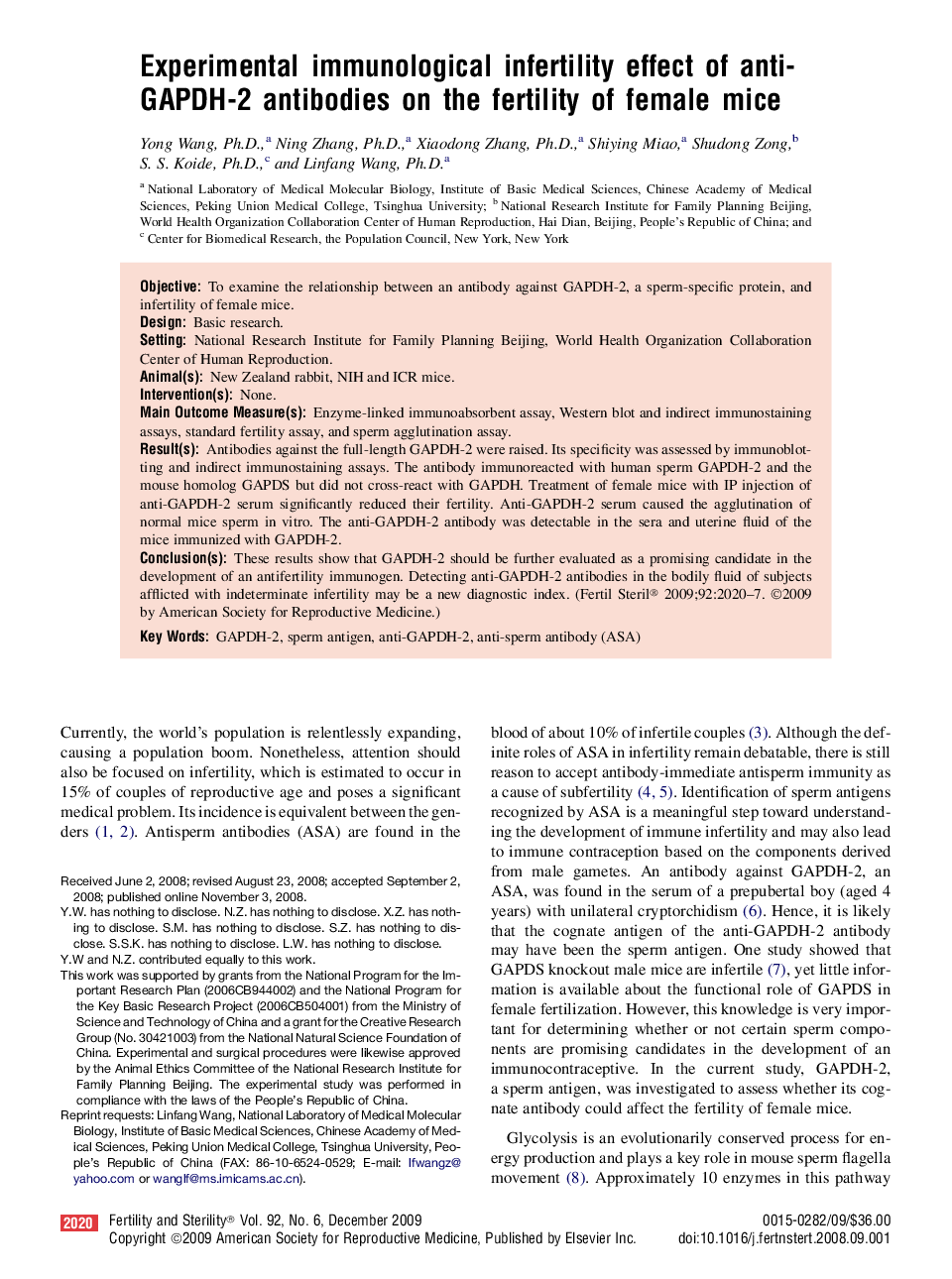| Article ID | Journal | Published Year | Pages | File Type |
|---|---|---|---|---|
| 3936432 | Fertility and Sterility | 2009 | 8 Pages |
ObjectiveTo examine the relationship between an antibody against GAPDH-2, a sperm-specific protein, and infertility of female mice.DesignBasic research.SettingNational Research Institute for Family Planning Beijing, World Health Organization Collaboration Center of Human Reproduction.Animal(s)New Zealand rabbit, NIH and ICR mice.Intervention(s)None.Main Outcome Measure(s)Enzyme-linked immunoabsorbent assay, Western blot and indirect immunostaining assays, standard fertility assay, and sperm agglutination assay.Result(s)Antibodies against the full-length GAPDH-2 were raised. Its specificity was assessed by immunoblotting and indirect immunostaining assays. The antibody immunoreacted with human sperm GAPDH-2 and the mouse homolog GAPDS but did not cross-react with GAPDH. Treatment of female mice with IP injection of anti-GAPDH-2 serum significantly reduced their fertility. Anti-GAPDH-2 serum caused the agglutination of normal mice sperm in vitro. The anti-GAPDH-2 antibody was detectable in the sera and uterine fluid of the mice immunized with GAPDH-2.Conclusion(s)These results show that GAPDH-2 should be further evaluated as a promising candidate in the development of an antifertility immunogen. Detecting anti-GAPDH-2 antibodies in the bodily fluid of subjects afflicted with indeterminate infertility may be a new diagnostic index.
